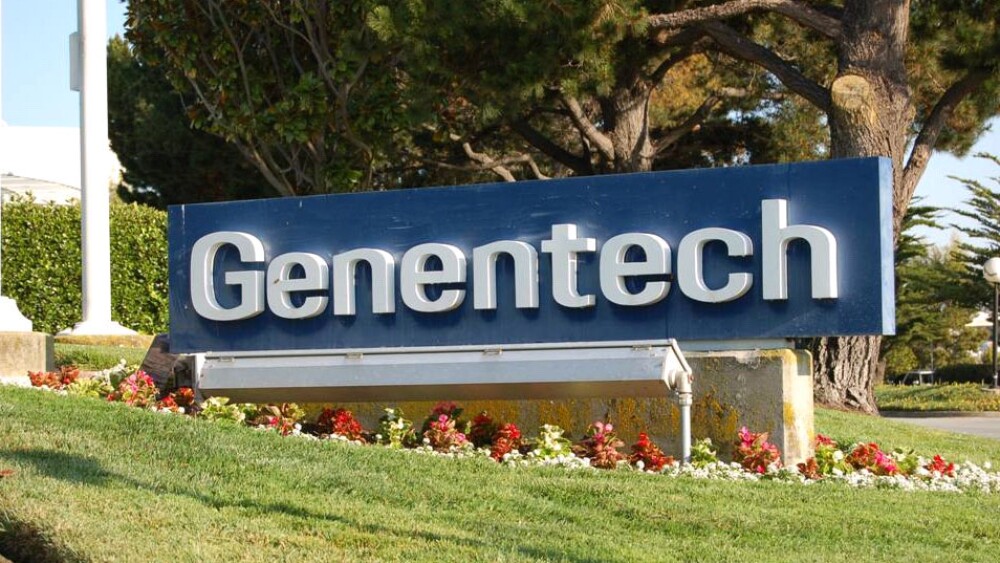March 2, 2017
By Alex Keown, BioSpace.com Breaking News Staff
SOUTH SAN FRANCISCO – Shares of Roche are up more than 7 percent this morning after subsidiary Genentech announced positive results from its Phase III combination study of Perjeta, Herceptin and chemotherapy showed a statistically significant reduction in tumors returning or death.
Genentech’s APHINITY trial has been one closely watched and is expected to add billions in revenue to the Swiss-based drugmaker.
Patients with HER2-positive early breast cancer taking the combination therapy achieved a statistically significant reduction in the risk of recurrence of invasive disease or death in people (EBC) compared to Herceptin and chemotherapy alone, the company said in its announcement. Roche did not disclose all the details of its announcement, saying it planned to release full results from the Phase III trial at a conference later this year, presumably the American Society of Clinical Oncology, which will be held in June in Chicago. The safety profile of the Perjeta-based regimen was consistent with that seen in previous studies, and no new safety signals were identified, the company said.
“These results from the positive APHINITY study represent an important addition to the body of data for Perjeta in the treatment of people with HER2-positive early breast cancer,” Sandra Horning, Genentech’s chief medical officer and head of Global Product Development, said in a statement. “We look forward to discussing these adjuvant results with global regulatory authorities.”
Meeting endpoints in this trial was key for Roche as Herceptin will soon lose patent protection and face expected challenges from biosimilars in the U.S. The drug generated nearly $7 billion in revenue for the company last year. Bloomberg said that approximately 70 percent of patients on Herceptin could benefit from the combination tested in the trial. Genentech’s Herceptin, which was approved in 2002, has been hailed for its efficacy in treating HER-2-positive breast cancer, which is caused by the over production of the HER-2 gene in tumor cells. The new combination treatment could generate about $9 billion annually by 2021. But, that will likely depend on how effective the combination therapy really is. Earlier this month, analysts at Mirabaud Securities LLP speculated study will need to show that 90 percent of the women on the combination of Herceptin and Perjeta will see no return of their cancer for at least two years. A combination of Herceptin and chemotherapy alone have shown a three-year disease-free survival rate as high as 90 percent, according to Jeffries analysts cited by The Street.
If the tri-combination treatment is approved, the drug will likely have a high price tag, possibly up to $10,000 per month, according to a note written by Jeffrey Holford, an analyst with Jefferies LLC in London, The Street said.
Drug development for breast cancer is one of the strongest areas in pharma R&D. A 2016 analysis by GBI Research shows there are 1,050 drugs in active development across multiple trial stages, with 347 programs being “first in class.”
HER2-positive breast cancer is an aggressive form of the disease, which affects approximately one in five people with breast cancer and is associated with a poor prognosis if left untreated. Despite advancements in the treatment of HER2-positive EBC, Roche said up to one in three people treated with Herceptin and chemotherapy may eventually see their cancer return, which highlights the need for new treatments.





